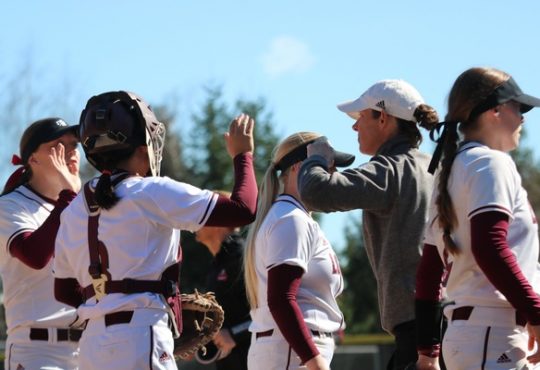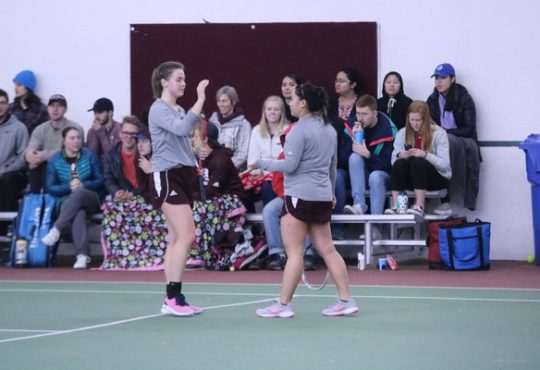Josh Seekatz (Philomath, Ore.) dominates long distance track and field in the spring and cross country in the fall.
Running track events like the 1500-meter race, the steeplechase and the five kilometer race, Seekatz understands on a fundamentally deep level the focus, determination and will-power it takes to race at a college level, at an intense athletic level.
Commencing his track and field and cross country running careers in seventh grade, Seekatz had previously only competed on swimming and soccer teams.
Seekatz took time to adjust. “I sucked,” Seekatz said. “But it was superfun. I did it for friends.”
Though he needed a season to truly get up to speed, Seekatz learned the in’s and out’s of the two sports and began to master them, running faster with each season.
During his freshman year of high school, Seekatz competed in both soccer and track at the same time, but “track was always more fun,” Seekatz said.
Through his experience as a member of multiple teams, especially at the same time, Seekatz gained a new appreciation for the atmosphere. “Being with a team everyone is working together for the same goal. It fuels competitiveness,” Seekatz said.
At Puget Sound Seekatz, a junior majoring in biology, with a particular interest in botany and ecology, has been a major competitor of both track and field and cross country for three years and plans to keep with the two programs for his senior year as well.
Though middle and high school sports are incredibly different from those competed at a collegiate level, Seekatz has learned how to be a very successful athlete.
“I know how to supplement my running when I have injuries,” Seekatz said. He also describes how he has learned to combine cross-training exercises with running. “Weight (training) helps so much,” Seekatz said. “In the weight room we work on what little explosive muscles we have.”
Though Seekatz “ran decently fast times” as a freshman, he “ran inconsistently.” After realizing his “aerobic threshold was so much higher” and that he could perform at “really high intensity for a long time,” Seekatz began to drastically improve.
“Taking care of yourself in general” is one of the most important things, Seekatz said. “You get a lot of nagging injuries, lots of little preventative things.”
During his sophomore year, Seekatz became anemic for a period due to a lack of calories. After taking a full month off to recover, Seekatz returned with energy and enthusiasm.
“[Training]is hard for me mentally,” Seekatz said. “[Hard workouts] break you down until there’s nothing left and then see how much you can put your foot on the gas and just go,” Seekatz said.
The team does a workout each season called “To Hell and Back,” which involves the runners completing a two-mile warm-up; a 20 minute fartlek; 600, 500, 400, 300, 200 meters sprinting; a 20 minute fartlek; and finally 400 meters sprinting five times.
“It’s the hardest workout of the season,” Seekatz said.
Though he is a very talented runner, Seekatz still “gets really nervous” and is superstitious before races.
Because his high school cross country coach told him “dairy makes it so you can’t breathe” Seekatz avoids all dairy products the day of a race and “never shaves on race day,” Seekatz said.
Seekatz truly enjoys the excitement of his sport.
“Track is more fun; it’s a head to head race. In track I like most that you have to learn about people,” Seekatz said. “Track is fast and unpredictable.”
Last season, Seekatz took second at Northwest Conference Championships in the steeplechase and is most excited about the race for the upcoming championships as well, as he is confident that he can take first place in the race. He will also be competing in the 1500-meter race and the five-kilometer race.
“I am excited for the 1500 meter race. Everyone is cooking around the track. It’s fun because there are no methods. It’s less of a chess match (than the five-kilometer race,” Seekatz said.
The Northwest Conference Championship will be held at our own Peyton Field track on April 25-26.





